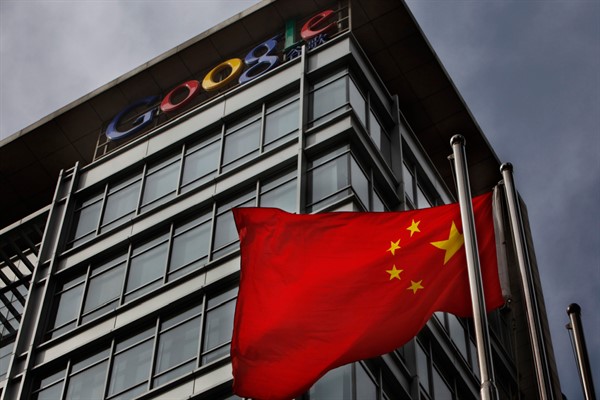Editor’s note: The following article is one of 30 that we’ve selected from our archives to celebrate World Politics Review’s 15th anniversary. You can find the full collection here.
In June 2012, Google’s acrimonious relationship with the People’s Republic of China took a couple of new turns. In order to assist Chinese users to access information freely from behind the controls of the Great Firewall of China, Google created a unique feature for its popular search engine: When users attempt to search for banned keywords, Google warns them that this might cause their Google connection to be interrupted and suggests alternative spellings and phrasings that would ensure they can access the desired content. In effect, Google’s search engine now facilitates the circumvention of China’s censorship of the Internet.
The second new feature is slightly more ominous: a warning issued to some users of Google’s Gmail whose accounts Google suspects might be targeted by “state-sponsored” hackers. Attribution of any attack in cyberspace is extraordinarily difficult, and Google has remained tight-lipped about how they know a particular attack is state-sponsored. Nor did Google explain to what extent they would issue this warning to users who might be victimized by states other than China. These questions are particularly relevant given that, in the same week, the New York Times reported in detail that the United States and Israel were behind the Stuxnet worm that sabotaged uranium enrichment facilities in Iran last year. It is doubtful that Google would give the same warning to Iranians working in critical infrastructure facilities -- “state-sponsored” may simply be a synonym for “China-sponsored.”

